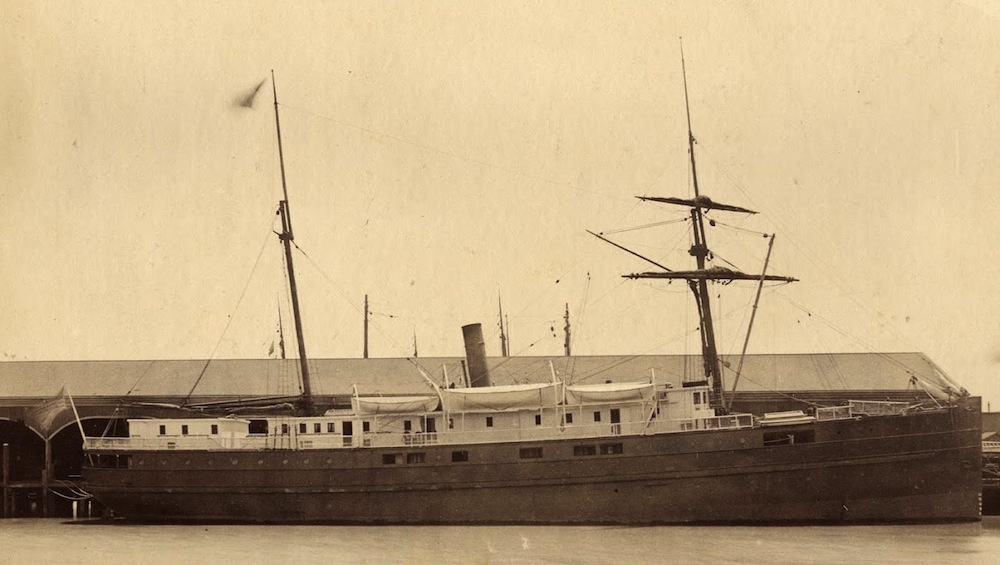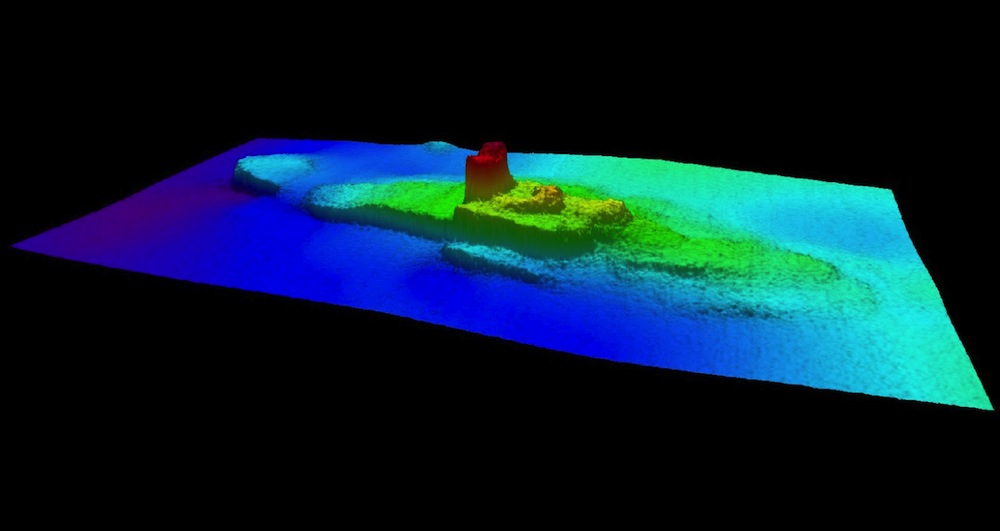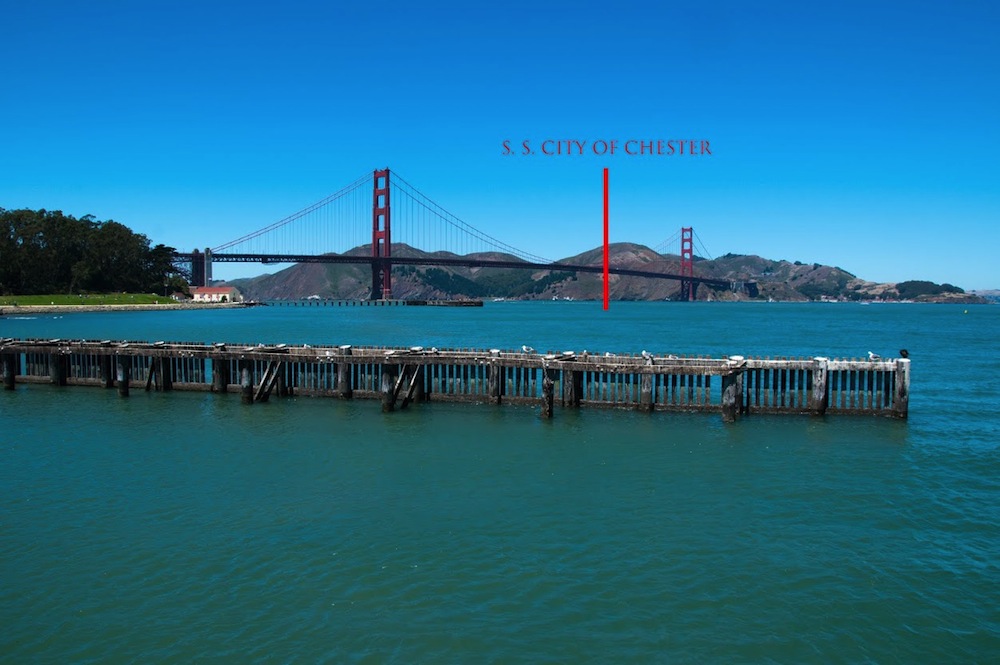1800's Shipwreck Rediscovered Near Golden Gate Bridge

The lost shipwreck of a passenger steamer that went down near the Golden Gate in San Francisco has been rediscovered.
The National Oceanic and Atmospheric Administration (NOAA), announced the discovery of the remains of the SS City of Chester today (April 23). NOAA's Coast Survey Navigational Response Team 6 discovered the wreck last year during a sonar survey of the San Francisco Bay.
The City of Chester was built in 1875 and sank in 1888. Carrying 90 passengers, the ship was steaming away from San Francisco toward Eureka, Calif., on Aug. 22 of that year. The fog that day was dense.
Only a few minutes into the voyage, around 10 a.m., the City of Chester was traveling through the Golden Gate, the entrance to San Francisco Bay that is now spanned by the Golden Gate Bridge. The ship was struck by the Oceanic, another ship arriving at the harbor from Asia. [Shipwrecks Gallery: Secrets of the Deep]
Abandoned ship

The City of Chester lasted only six minutes before the ship sunk, according to NOAA. Sixteen people died in the wreck, and the public initially raised a racially charged outcry against the Asian immigrants on the Oceanic. Stories of those passengers' heroism in saving victims on the City of Chester soon dampened those cries, however.
The wreck's location in the aftermath of the sinking was no mystery, said James Delgado, the director of maritime heritage for NOAA's Office of National Marine Sanctuaries. In 1888, the now-defunct U.S. Coast and Geodetic Survey dragged a wire behind a tugboat and snagged the hull of what they believed to be the City of Chester. Salvage diver Capt. Robert Whitelaw also claimed to have sent a diver to the shipwreck in 1890. Whitelaw reported that the ship was cut nearly in two by the Oceanic's blow.
Sign up for the Live Science daily newsletter now
Get the world’s most fascinating discoveries delivered straight to your inbox.
The diver "said there were bodies in the wreck, and it spooked him and he didn't want to go back," Delgado told Live Science.
But over the years, the wreck was largely forgotten, except as a footnote as the second-deadliest maritime disaster at the Golden Gate. In May 2013, NOAA's Coast Survey team was conducting a sonar survey in preparation for the America's Cup yacht race, Delgado said. He asked the team to venture into the area where the City of Chester might have gone down.
Fortuitous find

The team was able to find the ship, "zoom in" with sonar and survey it. The survey revealed 202-foot-long (62 meters) City of Chester sitting upright at the edge of a shoal in 216 feet (66 m) of water, "shrouded in mud," Delgado said.
The hull rises 18 feet (5.5 m) from the ocean floor, and high-resolution sonar even located the gash from the collision on the port side of the ship, NOAA reported.
The discovery highlights the use of science and technology in ocean exploration, Delgado said, adding that he hopes the mission inspires young people to study science.
"Not only are we boldly going and finding new life [in the oceans]," he said, "we're finding evidence of past civilization."
There are no plans to raise the wreck, and the strong currents and murkey water at the Golden Gate make diving to the wreck a dangerous proposition, Delgado said. NOAA intends to create an exhibit about the ship at the office of the Gulf of Farallones National Marine Sanctuary at Crissy Field in San Francisco and will also work with Google Oceans to put information about the wreck online, Delgado said.
Editor's Note: This article was updated at 3 p.m. Eastern time to add quotes from James Delgado.
Follow Stephanie Pappas on Twitter and Google+. Follow us @livescience, Facebook & Google+. Original article on Live Science.

Stephanie Pappas is a contributing writer for Live Science, covering topics ranging from geoscience to archaeology to the human brain and behavior. She was previously a senior writer for Live Science but is now a freelancer based in Denver, Colorado, and regularly contributes to Scientific American and The Monitor, the monthly magazine of the American Psychological Association. Stephanie received a bachelor's degree in psychology from the University of South Carolina and a graduate certificate in science communication from the University of California, Santa Cruz.









